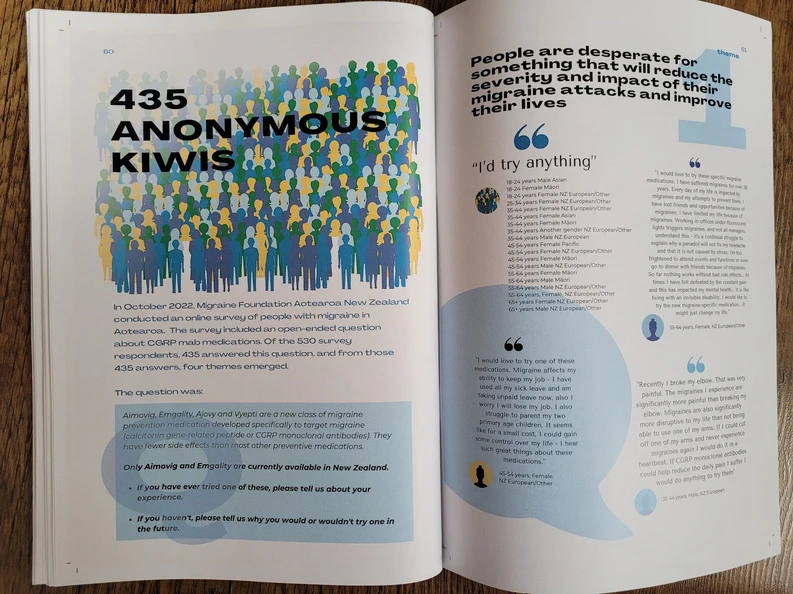“The stories were heartbreaking”
That was the comment from Dr Brian Anderson, Chair of Pharmac’s Neurological Advisory Committee, when speaking about the collection of stories we gave to Pharmac and the Committee about people’s experiences of living with migraine in Aotearoa New Zealand.
These stories made an impression. No one can deny the reality of migraine as a disabling and life-limiting neurological condition when confronted with multiple accounts from multiple individuals about the destructive impact of migraine on work, parenting, family life, social life, finances, physical and mental health.
The job of the Neurological Advisory Committee is to assess funding applications for new medicines aimed at neurological conditions, and make an initial recommendation about whether these should be funded by Pharmac, based on Pharmac’s four factors for consideration: health need, health benefit, costs and savings, and suitability. They can recommend that an application is declined or funded at a high, medium or low priority.
The Committee met on Tuesday 19 September 2023 to discuss seven new medications, including three new migraine treatments. These were erenumab (Aimovig), galcanezumab (Emgality) and atogepant (Aquipta or Qulipta), all for the treatment of both episodic and chronic migraine.
Migraine Foundation Aotearoa New Zealand put in the application for galcanezumab in November 2022. We were invited to present to the Committee for 15 minutes on the impact of migraine, after they had dashed down their lunches at speed because they were running overtime. Dr Fiona Imlach presented on the burden of migraine, using data from the Migraine in Aotearoa New Zealand survey, and the potential benefits from having better treatment options.
Neurologist Dr Desiree Fernandez, who is a member of our Clinical Advisory Group, then talked about the costs of migraine, particularly for the health system, and how the expense of the new migraine treatments was worsening inequities in migraine care. Desiree is one of only four headache specialists in New Zealand, and was the only one able to attend the meeting, albeit virtually, as all the others were still travelling home from the biennial International Headache Congress in Seoul. We were very grateful to Desiree for adding her professional mana to our team, despite jetlag and lack of sleep.
Several Committee members had questions, which we were more than happy to answer. It showed that they were engaged, curious and attentive, and it meant that our presentation went overtime.
We’ve done all we can now, to prove to Pharmac and its clinical advisors that these new medications deserve to be funded at a high priority. It will take another 2–3 months before we hear the outcome of this meeting, and even then, it still has to go through more layers of Pharmac decision-making.
Huge thank you to everyone who answered our survey questions and so generously gave us your stories. All of this has made a difference. Your stories broke a doctor’s heart.


